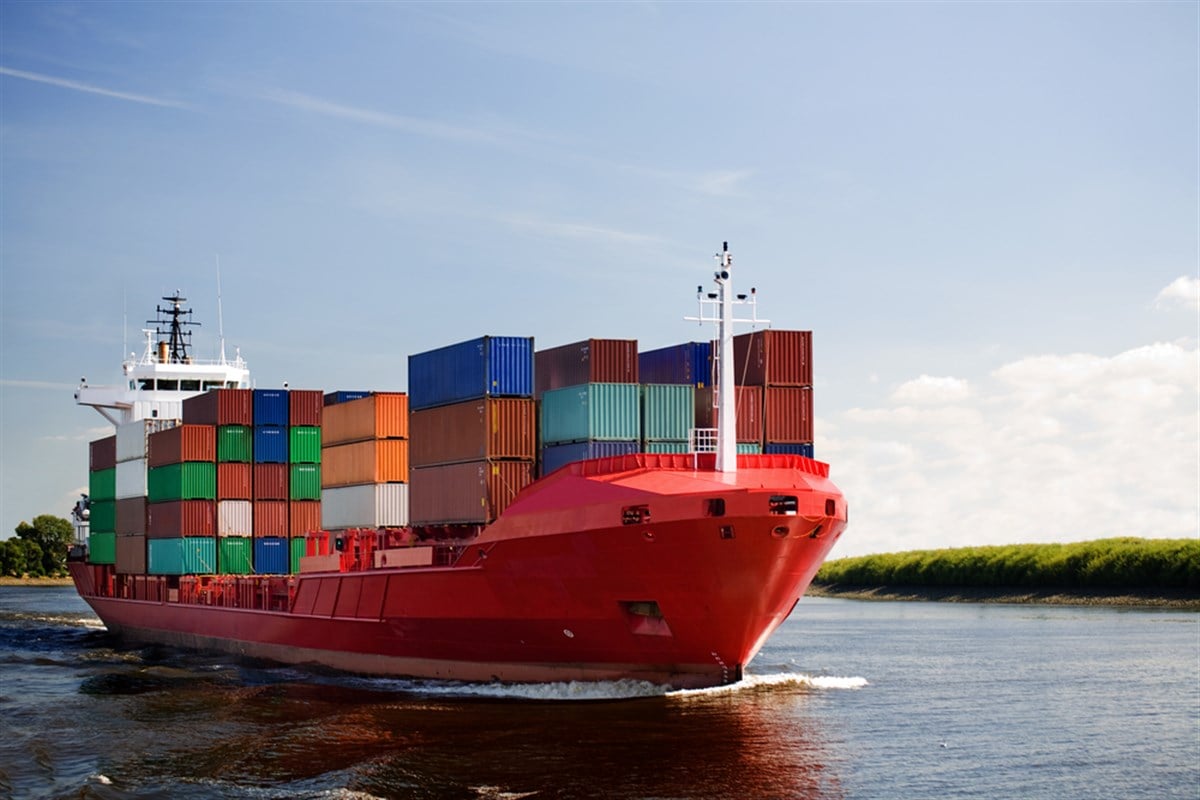
Just as investors thought inflation was easing, conflict in the Middle East and drought in Latin America may combine to push shipping rates higher for companies like ZIM Integrated Shipping Services Ltd. (NYSE: ZIM), Star Bulk Carriers Corp. (NASDAQ: SBLK), Golden Ocean Group Ltd. (NASDAQ: GOGL), Matson Inc. (NYSE: MATX), and Genco Shipping and Trading Ltd. (NYSE: GNK).
Shipping stocks as a group are trading lower the week of January 8; the Breakwave Dry Bulk Shipping ETF (NYSEARCA: BDRY) is down 16.87% in the past week on rumors that Yemen’s Houthi rebels had reached a pack with shipping companies to ensure safe passage.
However, European container shipping giants A.P. Moller - Maersk A/S (OTCMKTS: AMKBY) and Hapag-Lloyd Aktiengesellschaft (OTCMKTS: HPGLY) deny that an agreement has been reached.
Once the situation is resolved, analysts say it could take months before shipping traffic is back to normal in the Suez Canal.
Shipping company stocks were some of the market’s big winners between mid-2020 and mid-2022. Initially, these transporters could fetch high rates as port restrictions made transportation difficult. Supply-chain constraints kept rates high until mid-2022 when the system finally became untangled.
Companies not on investors' radar
These shipping companies can sail under investors’ radar, as they are frequently based outside the U.S., and are all categorized as mid-caps or small-caps. Even a U.S.-based shipper such as the Honolulu-headquartered Matson, with a market capitalization of $4.56 billion, is too small for S&P 500 membership.
The various shipping companies have different business models, with some, like Matson, focusing on container shipping of goods, while others specialize in dry bulk shipping. That means transporting large quantities of raw commodities, such as coal, iron ore and grains.
In a logistics-driven business, schedule changes and disruptions are no small matter. Logistics are key behind-the-scenes components of other transportation stocks, but shippers are facing some unique challenges in 2024.
But there may be a silver lining.
Pricing in longer trips
Shipping companies are now pricing in longer trips, as they are avoiding the Suez Canal due to ships coming under attack in the Red Sea. So now, instead of navigating through the Mediterranean Sea to European ports, container ships are taking the route around Africa. Check a map if you’re not familiar with the region; that’s a significantly longer journey to bring stuff from China’s manufacturers to Europe.
It also lengthens the journey to U.S. and Latin American ports.
According to analysts at investment bank Jefferies, the turmoil in the Red Sea region is likely to disrupt shipping routes for the foreseeable future. That will keep shippers’ rates high.
Shipping rates on the rise
In a research note, Jefferies analysts wrote, “The sudden change in fleet schedules has reduced near-term capacity and squeezed spot rates higher.” Its analysts estimated that shipping rates between Asia and the East Coast of the U.S. had risen by about 40% in the past month.
Eventually, the shipping companies will make more ships available to ease some of the scheduling snafus, analysts believe.
“This sudden shift has created a squeeze in near-term vessel availability and freight rates have surged to well-above profitable levels,” Jefferies analyst Omar Nokta wrote.
Shipping company stocks were continuing to trade lower, even after Maersk and Hapag-Lloyd said reports of a Suez Canal safe passage deal were incorrect.
Panama problems also a factor
While analysts were confident the problems in the Suez Canal would eventually be resolved, on the other side of the world, the Panama Canal is a trouble spot due to drought conditions.
This is another major shipping route connecting the Pacific coast of the U.S. with Atlantic routes to Europe.
Because of drought, the Panama Canal Authority has restricted the number of ships allowed to pass. That’s increasing rates for shippers due to delays, with many now opting for longer, more expensive routes.
For investors, all of this means continuing to monitor how shipping companies could benefit from not only geopolitical tensions, but climate-related issues like drought. Even if the situations reverse themselves, there may be opportunities for profitable swing trades in the coming weeks and months.




